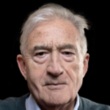Checkmate in Berlin: The Cold War Showdown That Shaped the Modern World
(Libby/OverDrive eAudiobook)
Available Platforms
Description
From a master of popular history, the lively, immersive story of the race to seize Berlin in the aftermath of World War II as it’s never been told before BERLIN’S FATE WAS SEALED AT THE 1945 YALTA CONFERENCE: the city, along with the rest of Germany, was to be carved up among the victorious powers— the United States, Britain, France, and the Soviet Union. On paper, it seemed a pragmatic solution. In reality, once the four powers were no longer united by the common purpose of defeating Germany, they wasted little time reverting to their prewar hostility toward—and suspicion of—one another. The veneer of civility between the Western allies and the Soviets was to break down in spectacular fashion in Berlin. Rival systems, rival ideologies, and rival personalities ensured that the German capital became an explosive battleground.The warring leaders who ran Berlin’s four sectors were charismatic, mercurial men, and Giles Milton brings them all to rich and thrilling life here. We meet unforgettable individuals like America’s explosive Frank “Howlin’ Mad” Howley, a brusque sharp-tongued colonel with a relish for mischief and a loathing for all Russians. Appointed commandant of the city’s American sector, Howley fought an intensely personal battle against his wily nemesis, General Alexander Kotikov, commandant of the Soviet sector. Kotikov oozed charm as he proposed vodka toasts at his alcohol-fueled parties, but Howley correctly suspected his Soviet rival was Stalin’s agent, appointed to evict the Western allies from Berlin and ultimately from Germany as well.Throughout, Checkmate in Berlin recounts the first battle of the Cold War as we’ve never before seen it. An exhilarating tale of intense rivalry and raw power, it is above all a story of flawed individuals who were determined to win, and Milton does a masterful job of weaving between all the key players’ motivations and thinking at every turn. A story of unprecedented human drama, it’s one that had a profound, and often underestimated, shaping force on the modern world – one that’s still felt today.
More Details
Also in this Series
Published Reviews
Publisher's Weekly Review
Historian Milton (Soldier, Sailor, Frogman, Spy) captures in this immersive account the drama and intrigue of Berlin in the immediate aftermath of WWII. At the 1945 Yalta conference, Berlin was divided into three zones of occupation to be controlled by the U.S., Great Britain, and the Soviet Union. However, the border of Soviet-controlled East Germany was drawn 110 miles west of Berlin, which meant that the American and British sectors of the city would be surrounded by the Red Army. The Allies hoped that any difficulties could be overcome by diplomacy, but problems arose from the beginning. Soviet troops entered Berlin first and began a program of rape, violence, and plunder; by the time the Allies were allowed in, the Russians had looted everything of value from the Western sectors. Milton notes that the basic ration card providing Berliners with only 1,504 calories per day was known as the "death card," and documents high-level Soviet defections that brought to light Russian infiltration of U.S. and British atomic research programs, Stalin's rigging of local elections, the kidnapping of German scientists by the Soviets, the diplomatic tensions leading up to the 1948--1949 Soviet blockade of the city's western half, and the resulting airlift that helped bring the siege to an end. Full of vivid details and intriguing personalities, this is a page-turning chronicle of a noteworthy period in world history. (July)
Library Journal Review
Recognizing that Berlin was a center of attention throughout the Cold War, historian Milton (Soldier, Sailor, Frogman, Spy) enlightens both avid readers and practicing historians with sketches of the foreign military leaders who, from 1945 to 1949, presided over occupied Berlin's four sectors and interacted with each other and their countries' commanders in Germany. These lesser-known figures include American colonel Frank "Howlin' Mad" Howley; Soviet military commander Alexander Kotikov; British general Brian Robertson; and French general Charles Lançon, among others. Expertly employing candid vignettes, Milton also recognizes the roles played by U.S. air force officers William Tunner and Curtis LeMay during World War II, as well as the influence of Soviet general Georgy Zhukov. Although the Cold War ended in 1991, it still influences the relationship between Russia and the United States, Milton deftly argues. VERDICT Weaving together archival transcripts and an incredible array of secondary sources, this book satisfies on many levels and will engage fans of military history, as well as readers looking for fresh takes on World War II. As in his previous books, Milton's writing here is accessible and holds readers' attention from start to finish.--Frederick J. Augustyn Jr., Lib. of Congress, Washington, DC
Kirkus Book Review
An account of the stormy Allied-Soviet relations in Berlin after Germany's 1945 surrender. Most histories of this period emphasize Allied leaders (Truman, Churchill, Stalin) or generals (Eisenhower, Montgomery). In his latest World War II history, however, Milton moves down the hierarchy to focus on Berlin's four military governors, especially American colonel Frank Howley and his bitter rival, Soviet general Alexander Kotikov. A civil affairs specialist, Howley impressed superiors in governing and feeding Cherbourg and then Paris before he was promoted to command the American sector of Berlin. On June 17, 1945, his unit moved toward Berlin only to be stopped and harassed at the border of Soviet-occupied Germany. It was not until July 1 that he entered a city stripped bare after two months of Soviet looting, with communists in control of the police as well as road and rail traffic. Howley arrived with written orders to cooperate; however, confronted with Soviet policy aimed at expelling the three Western occupiers, he disobeyed. It helped that, unlike his British and French colleagues, he was both pugnacious and enterprising. Milton devotes two-thirds of the book to shouting matches, political skulduggery, and violent confrontation that might be called "comic-opera" if it weren't for the Soviet willingness to engage in kidnapping, sabotage, and murder. Perhaps the high note was the 1946 Berlin city council election. Free elections were never a Soviet strength, but they deluged the electorate with food, privileges, propaganda, and promises only to be horrified at their landslide defeat with less than 20% of the vote. Finally exasperated, in 1948 they cut off all supplies, resulting in the iconic Berlin airlift. Many popular histories treat that operation as a dazzling triumph, but Milton's detailed account reveals that Berliners starved and suffered intensely before Stalin called off the Soviet blockade. The author ends in 1949, with Berlin firmly divided, an outcome acceptable to the West but a persistent drain on the Soviet Union that ultimately contributed to its collapse. Entertaining if unedifying fireworks in postwar Berlin. Copyright (c) Kirkus Reviews, used with permission.
Library Journal Reviews
Award-winning Stanford professor Daughton's In The Forest of No Joy covers new territory in the brutal history of colonialism by chronicling the construction of the Congo-Océan railroad across the Republic of Congo. In New Women in the Old West, Gallagher (How the Post Office Created America) portrays the settling of the American West from the women's perspective, including the stories of Black, Hispanic, Asian, and Native American women. Former Wall Street Journal staffer Hagedorn's Sleeper Agent is George Koval, born in America and taken back to the Soviet Union by his idealistic Russian Jewish parents in the 1930s; he returned later after being recruited by the Red army and became the only Soviet military spy with security clearances for the Manhattan project (40,000-copy first printing). In Checkmate in Berlin, best-selling author Milton (Soldier, Sailor, Frogman, Spy, Airman, Gangster, Kill or Die) chronicles the Allies' post-World War II division of Germany and especially Berlin and the tensions that resulted (40,000-copy first printing). A New York Times best-selling novelist, Sohn turns to nonfiction with The Man Who Hated Women, an account of anti-vice activist and U.S. Postal Inspector Anthony Comstock and the restrictive Comstock Law. In The Verge, Wyman, whose Tides of History podcast boasts 600,000 subscribers, looks at the crucial impact of Europe's Reformation/Renaissance era (50,000-copy first printing).
Copyright 2021 Library Journal.Library Journal Reviews
Recognizing that Berlin was a center of attention throughout the Cold War, historian Milton (Soldier, Sailor, Frogman, Spy) enlightens both avid readers and practicing historians with sketches of the foreign military leaders who, from 1945 to 1949, presided over occupied Berlin's four sectors and interacted with each other and their countries' commanders in Germany. These lesser-known figures include American colonel Frank "Howlin' Mad" Howley; Soviet military commander Alexander Kotikov; British general Brian Robertson; and French general Charles Lançon, among others. Expertly employing candid vignettes, Milton also recognizes the roles played by U.S. air force officers William Tunner and Curtis LeMay during World War II, as well as the influence of Soviet general Georgy Zhukov. Although the Cold War ended in 1991, it still influences the relationship between Russia and the United States, Milton deftly argues. VERDICT Weaving together archival transcripts and an incredible array of secondary sources, this book satisfies on many levels and will engage fans of military history, as well as readers looking for fresh takes on World War II. As in his previous books, Milton's writing here is accessible and holds readers' attention from start to finish.—Frederick J. Augustyn Jr., Lib. of Congress, Washington, DC
Copyright 2021 Library Journal.Publishers Weekly Reviews
Historian Milton (Soldier, Sailor, Frogman, Spy) captures in this immersive account the drama and intrigue of Berlin in the immediate aftermath of WWII. At the 1945 Yalta conference, Berlin was divided into three zones of occupation to be controlled by the U.S., Great Britain, and the Soviet Union. However, the border of Soviet-controlled East Germany was drawn 110 miles west of Berlin, which meant that the American and British sectors of the city would be surrounded by the Red Army. The Allies hoped that any difficulties could be overcome by diplomacy, but problems arose from the beginning. Soviet troops entered Berlin first and began a program of rape, violence, and plunder; by the time the Allies were allowed in, the Russians had looted everything of value from the Western sectors. Milton notes that the basic ration card providing Berliners with only 1,504 calories per day was known as the "death card," and documents high-level Soviet defections that brought to light Russian infiltration of U.S. and British atomic research programs, Stalin's rigging of local elections, the kidnapping of German scientists by the Soviets, the diplomatic tensions leading up to the 1948–1949 Soviet blockade of the city's western half, and the resulting airlift that helped bring the siege to an end. Full of vivid details and intriguing personalities, this is a page-turning chronicle of a noteworthy period in world history. (July)
Copyright 2021 Publishers Weekly.Reviews from GoodReads
Citations
Milton, G. (2021). Checkmate in Berlin: The Cold War Showdown That Shaped the Modern World (Unabridged). Macmillan Audio.
Chicago / Turabian - Author Date Citation, 17th Edition (style guide)Milton, Giles. 2021. Checkmate in Berlin: The Cold War Showdown That Shaped the Modern World. Macmillan Audio.
Chicago / Turabian - Humanities (Notes and Bibliography) Citation, 17th Edition (style guide)Milton, Giles. Checkmate in Berlin: The Cold War Showdown That Shaped the Modern World Macmillan Audio, 2021.
Harvard Citation (style guide)Milton, G. (2021). Checkmate in berlin: the cold war showdown that shaped the modern world. Unabridged Macmillan Audio.
MLA Citation, 9th Edition (style guide)Milton, Giles. Checkmate in Berlin: The Cold War Showdown That Shaped the Modern World Unabridged, Macmillan Audio, 2021.
Copy Details
| Collection | Owned | Available | Number of Holds |
|---|---|---|---|
| Libby | 2 | 2 | 0 |































